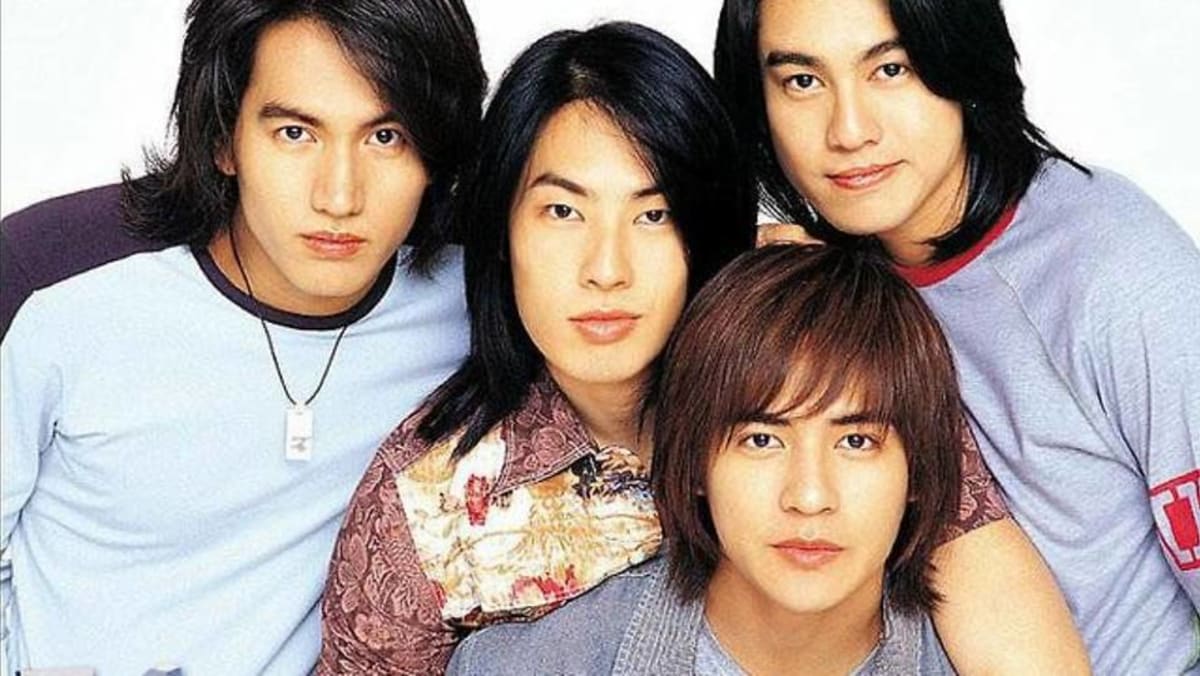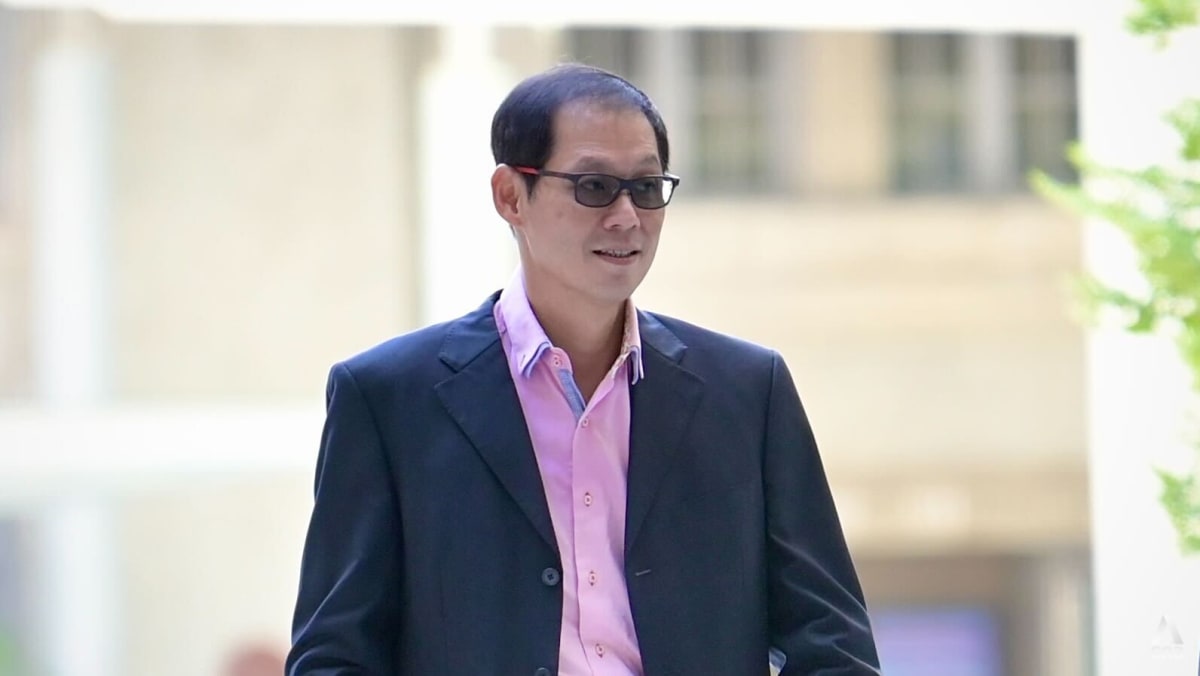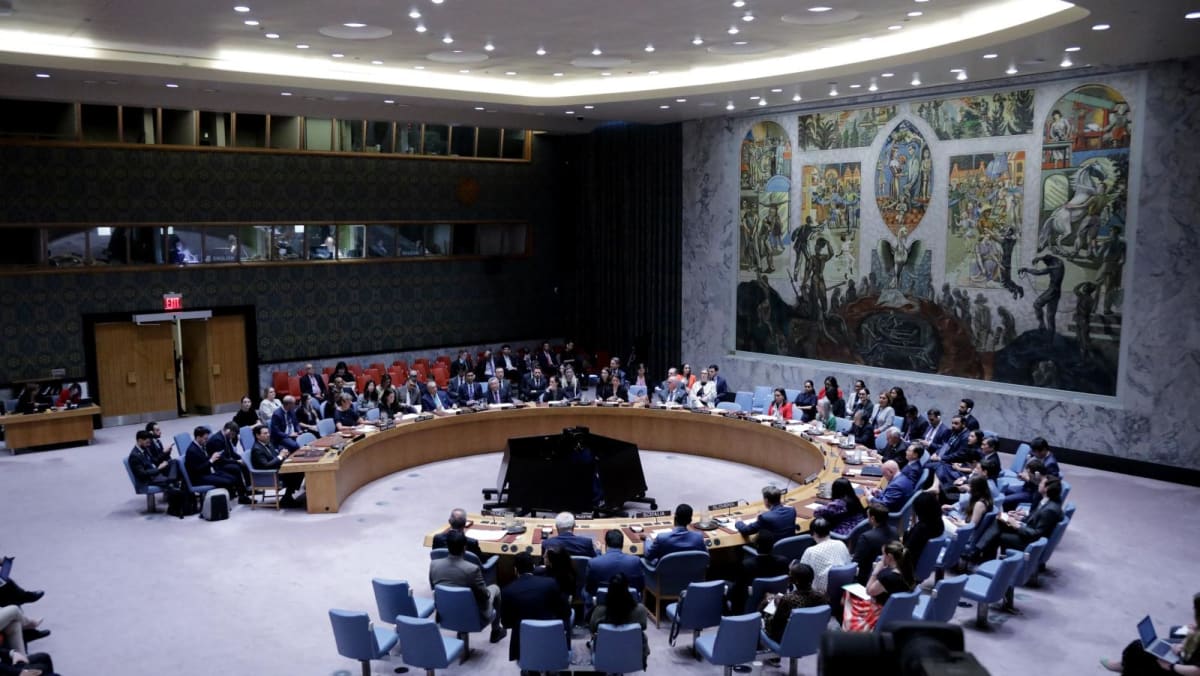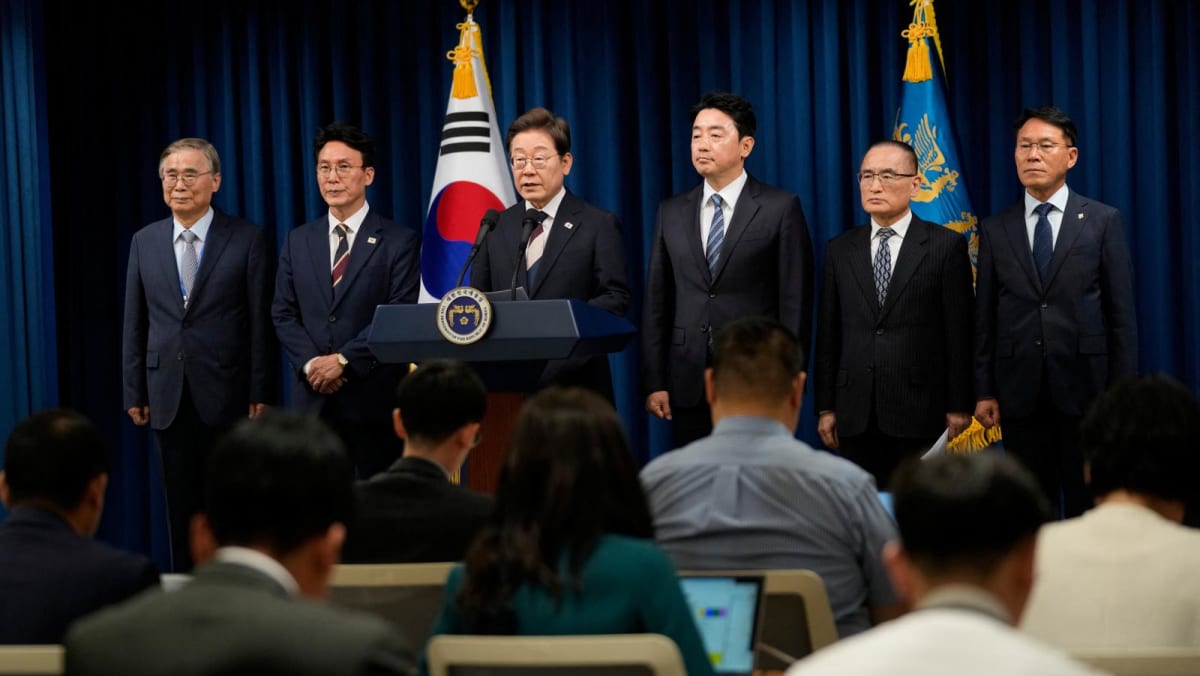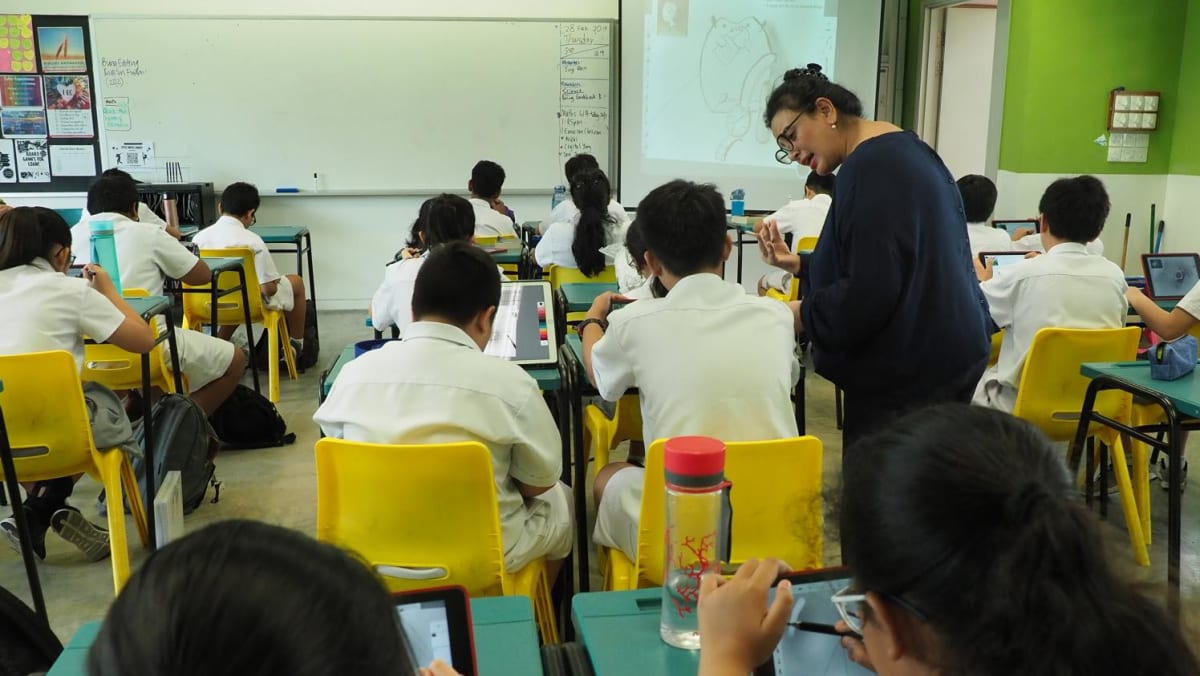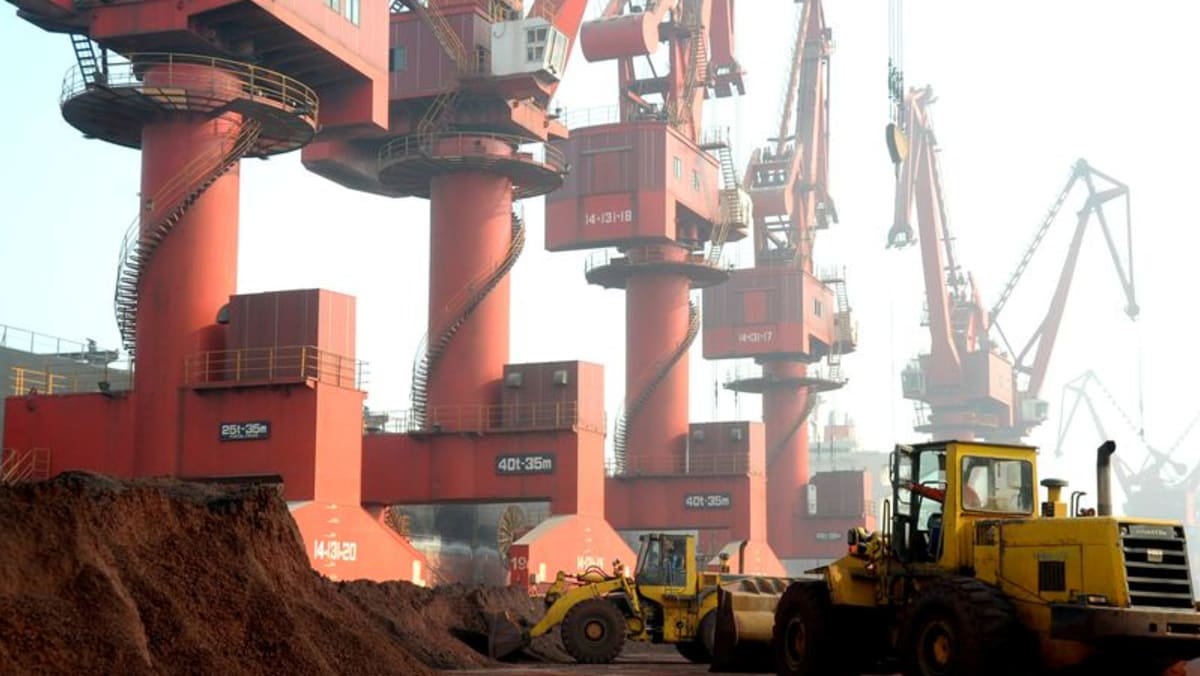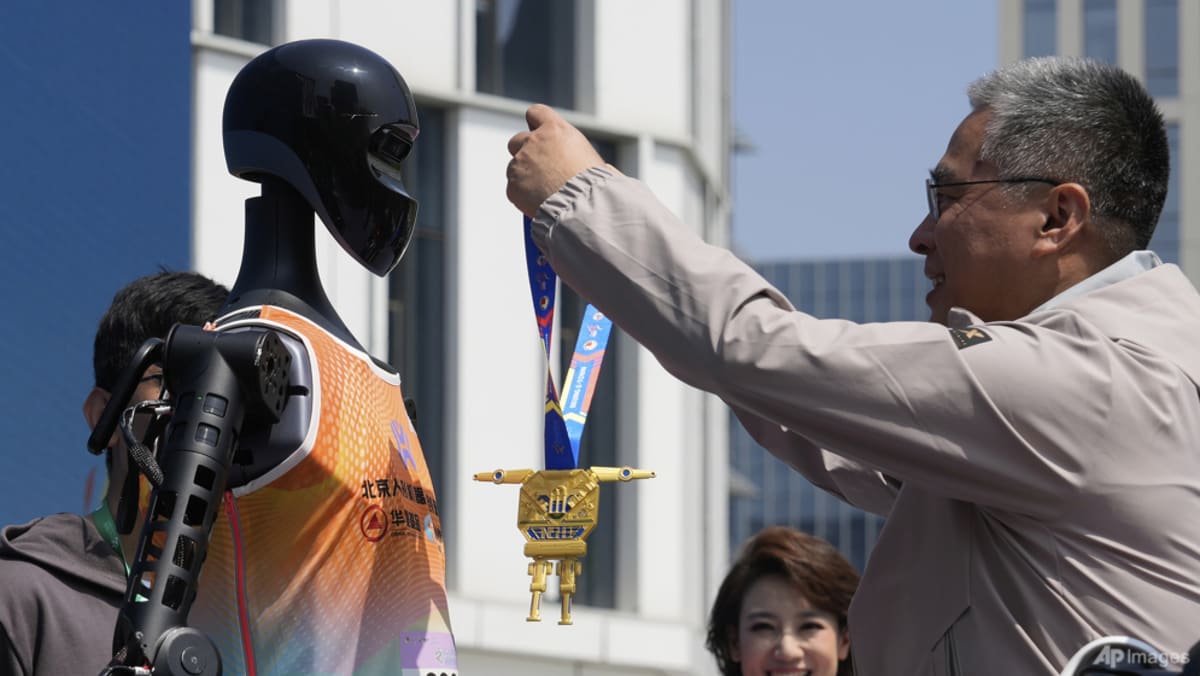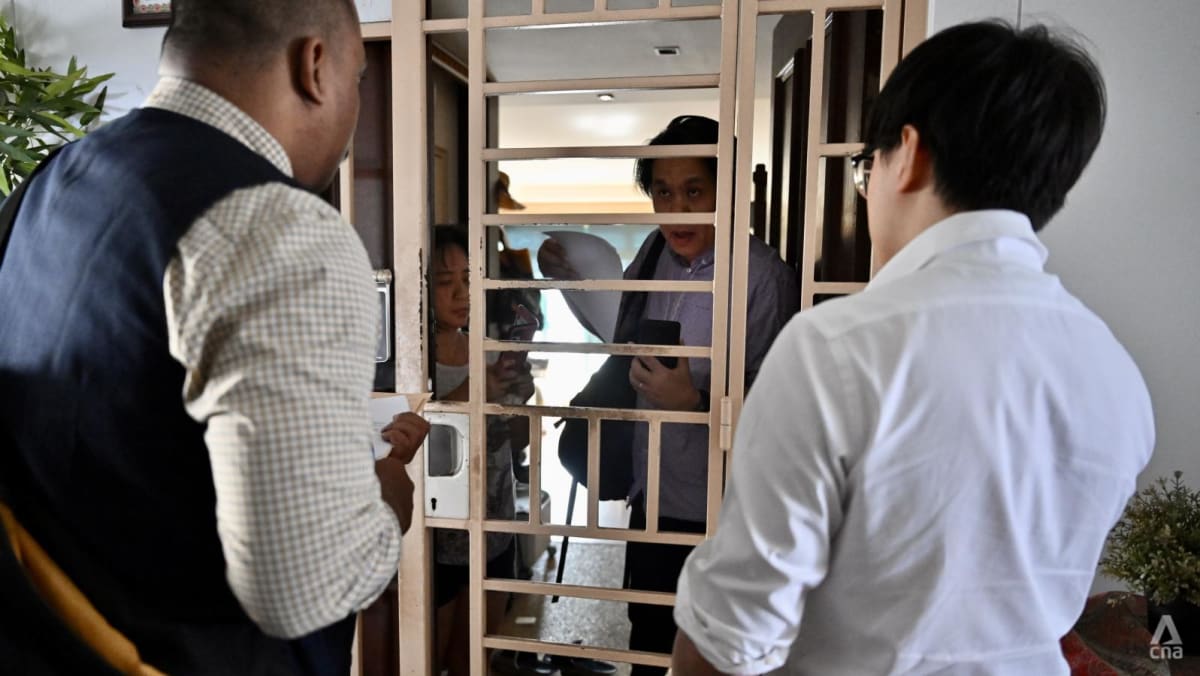United States President Donald Trump also acknowledged that tariffs would bring “a little disturbance” to the economy, a day after 20 to 25 per cent duties on Canadian, Mexican and Chinese imports took effect.

President Donald Trump addresses a joint session of Congress at the Capitol in Washington, Tuesday, March 4, 2025. (AP Photo/Ben Curtis)
New: You can now listen to articles.

This audio is generated by an AI tool.
United States President Donald Trump addressed a divided Congress on Tuesday (Mar 4) for the first time since returning to power, where he spoke about domestic priorities like cutting wasteful spending and balancing the federal budget.
US presidents typically address a joint session of Congress early in their tenure to outline their policy priorities.
But Trump delivered a speech aimed at his supporters by mostly listing his accomplishments over the past six weeks, observers told CNA.
“I heard a very long speech … and also one that was more of a campaign speech than a speech to Congress,” said political science professor Louis DeSipio from the University of California, Irvine.
“I was trying to keep track and I only really saw four specific ‘asks’. Usually these speeches are heavy on: ‘With your help, I can do the following, and your help means a vote from Congress’. Mostly, he said he was going to solve problems or had solved them already,” DeSipio noted.
Trump, who was sworn into his second term on Jan 20, talked for about an hour and 40 minutes – the longest presidential address to Congress in recent history.
"America is back" was a key theme underlining his address, drawing loud applause from Republicans but hostility from Democrats, some of whom held up signs and walked out mid-speech in protest.
Since Trump’s inauguration, the US has been gripped by his moves to dramatically reshape the federal government and redefine foreign policy.
DeSipio said Trump had gone “very heavy” on social issues and “very little” on the economy, despite being elected in part due to Americans’ dissatisfaction with cost-of-living pressures under former president Joe Biden’s administration.
“So, he probably spoke to his supporters and didn't speak very well to those who are concerned about a second Trump administration,” DeSipio added.
RECIPROCAL TARIFFS
To combat lingering inflation, Trump vowed in his speech to lower energy costs and cut federal spending.
 US President Donald Trump addresses a joint session of Congress at the Capitol in Washington, Mar 4, 2025. (Photo: AP/Ben Curtis)
US President Donald Trump addresses a joint session of Congress at the Capitol in Washington, Mar 4, 2025. (Photo: AP/Ben Curtis)
He also touted tariffs – one of his signature policy proposals – and announced that reciprocal duties against US trading partners will be imposed on Apr 2.
His tariffs on imports from America’s top three trading partners – Canada, Mexico and China – went into effect on Tuesday.
This will eventually lead to higher prices for US consumers and those in other affected countries, said law professor Magnus Wagner from the University of Wollongong, Australia.
“He's now threatening to broaden the scope … and what's predictable is that other countries will simply retaliate. Canada has already done so. China has done so,” Wagner pointed out.
“One of the (next) targets will be the European Union, (which) will very likely retaliate if Trump does this. He speaks of these reciprocal tariffs against everyone, against every other trading partner. It will eventually lead to much higher tariffs from other countries.”
Trump last week vowed to slap 25 per cent tariffs on the EU, saying details will be released soon. The bloc is the US’ largest trading partner.
Economists have warned that sweeping tariff hikes will cause a near-term increase in inflation, and complicate Trump's efforts to fulfill his campaign promises of lowering prices for Americans.
DeSipio said he believes Trump “is playing with fire”, and that the American public will not accept his acknowledgement in his Congress speech that tariffs will bring just “a little disturbance” to the US economy.
“I think that they will not necessarily attribute price rises specifically to tariffs, but they will be concerned when the cost of groceries begins to go up. And that will reinforce the message that the Trump administration is focused on other issues, such as anti-wokeness,” DeSipio added.
RUSSIA-UKRAINE WAR
Trump also touched on Russia’s three-year-long invasion of Ukraine in his Congress speech.
He said he was “working tirelessly” to end the “savage conflict” there, adding that the US had spent hundreds of billions on Ukraine's defence.
He also said he received an "important letter" from Ukraine leader Volodymyr Zelenskyy that indicated Ukraine is ready to sign a highly-anticipated minerals deal with the US.
The deal fell through last week after a disastrous Oval Office meeting between Trump and Zelenskyy, which led to Trump suspending US military aid to Ukraine.
However, Wagner noted that it remains unclear what kind of security guarantees the US is willing to give, even if Zelenskyy agrees to the minerals deal. This includes committing troops on the ground in Ukraine, which the observer said is not likely to happen.
“The question is also, how much of a reliance can we put on (Russian President) Vladimir Putin's words as to whether he wants a lasting peace,” Wagner told CNA’s Asia Now.
DeSipio said European allies will be crucial in this conversation.
“If - as part of the conversation with Russia - there can be security guarantees, I think Ukraine would be happy to have peace. But they don’t want to have peace imposed upon them,” he noted.
GOLDEN DOME
In terms of defence, Trump also spoke about focusing on “building the most powerful military of the future”.
He asked Congress to fund a state-of-the-start “Golden Dome missile defence shield”, similar to Israel’s Iron Dome short-range air defence system.
DeSipio told CNA’s Asia Now that the public should be seeking more details on this.
“At this point, what Trump is offering is more bluster than substance,” he said, noting that the Defense Department is looking at budget and civilian personnel cuts.
“So it's not actually clear what Trump is proposing in terms of the military. He has spoken about formal acquisitions (of) Panama, perhaps Greenland as well. He's talked about some new technologies for the military, but it's not clear how committed he is to the sort of boots-on-the-ground aspect of the military,” DeSipio added.
“I think this is an area where the American people and the world, for that matter, should be asking Trump for many more specifics.”


